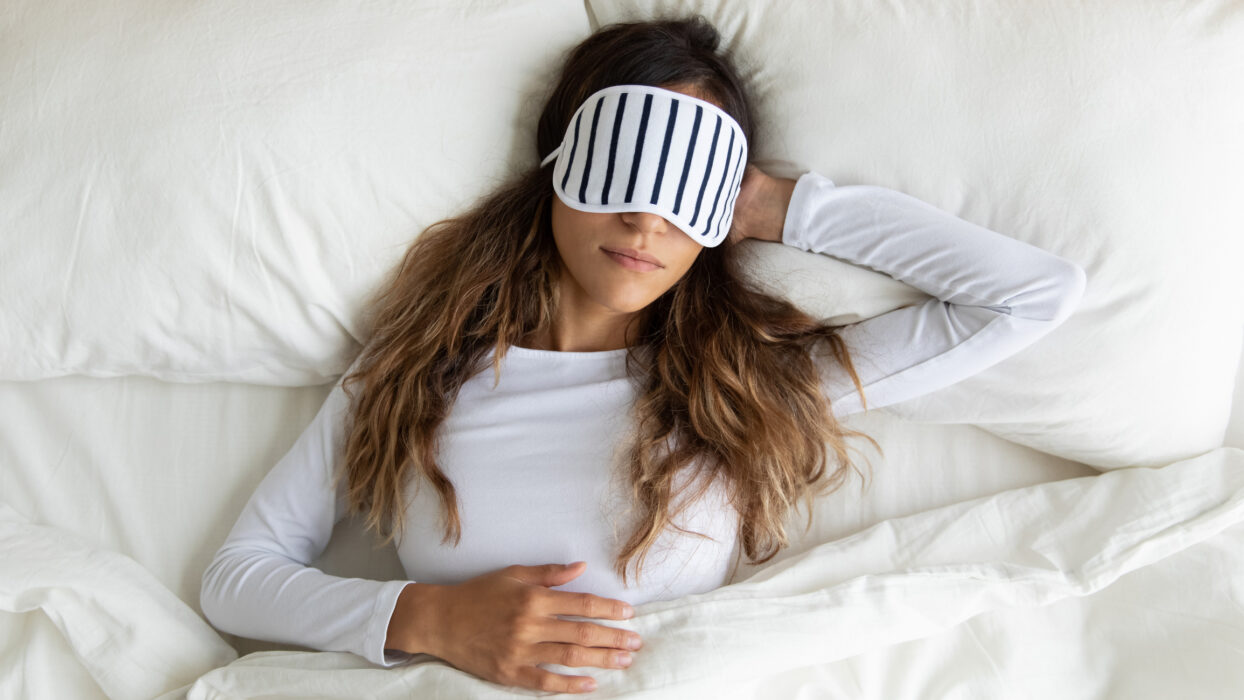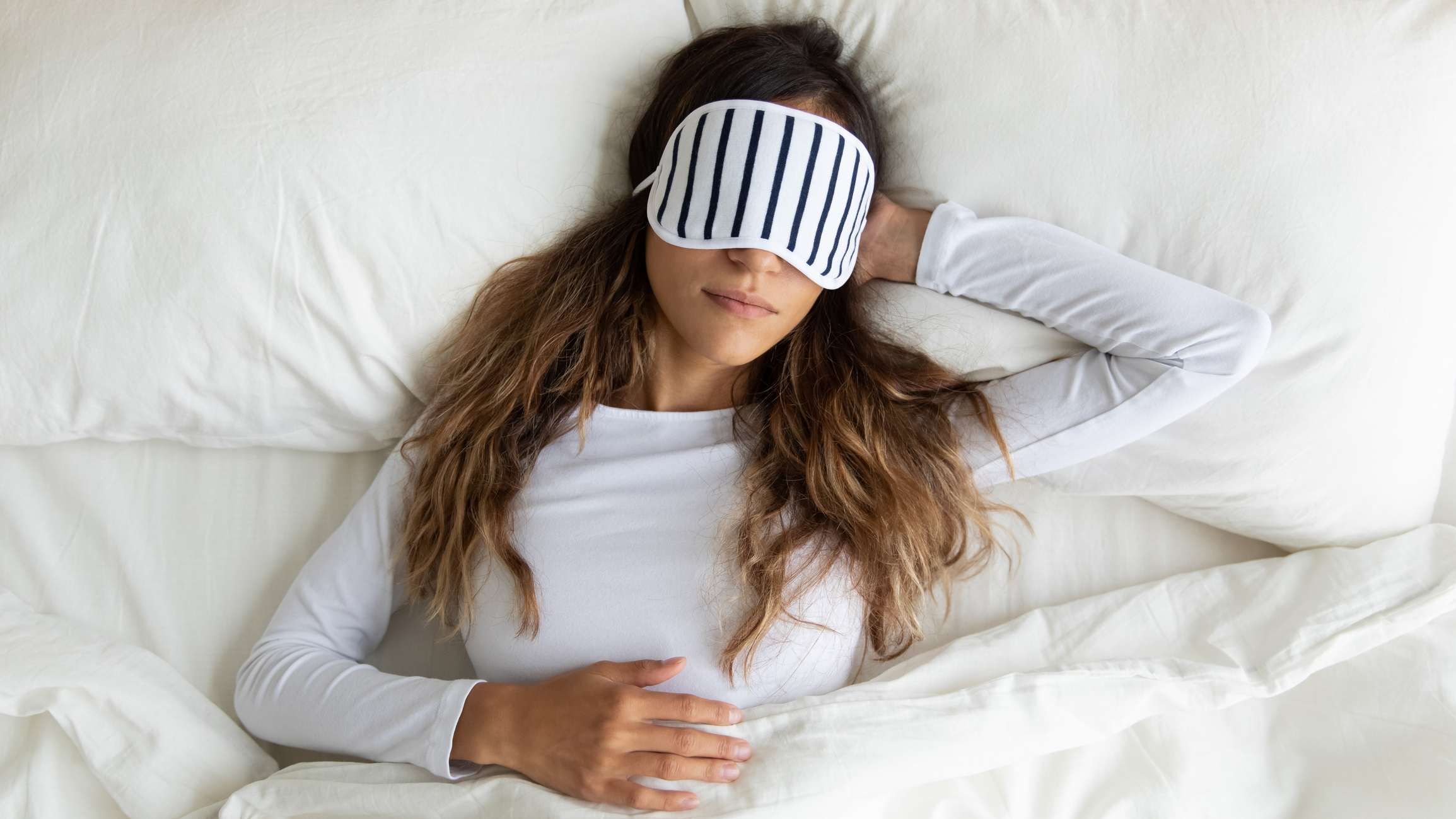
Why magnesium should be part of your sleep routine
Why magnesium should be part of your sleep routine

Sleep issues affect millions globally, with one in five adults reports occasional insomnia.[1]
This can include difficulty falling asleep, staying asleep, or staying alert during the day.[2]
Insomnia is a prevalent sleep disorder and often persists for years without effective treatment. While cognitive behavioural therapy (CBT) is the recommended first-line approach, a 2023 study found that only 16% of Australians with insomnia symptoms use it.[3] Around 35% rely on prescription medication, and nearly half turn to over-the-counter options such as antihistamines or melatonin.[4]
Amid growing uncertainty about the potential long-term risks of sleep medications, many people are looking for safer, evidence-based alternatives. The global sleep aids market – currently worth over US$5.5 billion – reflects the high demand for natural solutions. Among these, magnesium is one of the most popular choices.
But what does the research say?
Magnesium’s role in the body and mind
Magnesium is one of the body’s most valuable minerals. It’s required for healthy muscle contraction and relaxation, energy production, protein synthesis, nerve transmission, and many other areas of mental and physical function.[5]
Magnesium supports normal sleep patterns and relaxation by promoting serotonin, the neurotransmitter that contributes to good mood.[6] It also plays a key role in synthesising melatonin – the hormone that regulates the sleep-wake cycle – and activating GABA, the ‘calming’ neurotransmitter.[7]
Magnesium helps to calm the nervous system by inhibiting glutamate, an excitatory neurotransmitter, and supporting the production of GABA. It may also help lower cortisol, the body’s primary stress hormone.[8]
However, a significant proportion of the adult population is low or deficient in magnesium, partly due to diet.[9] The mineral content of plant foods has declined by 80⁻90% in the last century, and it’s estimated that around 60% of adults do not get their recommended daily intake of dietary magnesium.[10] Stress, poor intestinal absorption, and nutrient interactions (such as with calcium or medications) can further deplete magnesium stores.[11]
Can magnesium help you sleep better?
- A 2024 systematic review found that magnesium supplementation can be helpful in managing anxiety and improving sleep quality, particularly in those who are already low in magnesium.[12]
- Another 2024 study examined the effects of magnesium L-threonate, a highly bioavailable form of magnesium that can cross the blood-brain barrier and influence neurotransmitter activity more effectively. The study found that just three weeks of L-threonate supplementation in older adults (aged 35-55) improved overall sleep quality, especially slow-wave sleep (deep non-REM sleep) as well as mood, energy, alertness, daily activity, and productivity.[13]
- A 2021 systematic review and meta-analysis of magnesium supplementation for insomnia in older adults found some evidence that magnesium may reduce the time it takes to fall asleep. The researchers suggested that taking magnesium in divided doses (up to three times daily) may be helpful for insomnia symptoms.[14]
- Magnesium is associated with the production of melatonin, the “sleep” hormone. Magnesium deficiency is shown to decrease melatonin concentrations in the body
Which form of magnesium is best?
Different forms of magnesium are absorbed and utilised differently in the body. Some are better for sleep, others for muscle support.
A study comparing the bioavailability of magnesium citrate, malate, taurate, and glycinate found that magnesium acetyl taurate was most effective at increasing brain magnesium levels at all doses. Magnesium citrate appeared to be most beneficial for delivering magnesium to tissues throughout the body, but only at higher doses. Magnesium glycinate was also found to improve brain levels of magnesium, while magnesium malate appeared to have limited uptake in the body.[15]
How to include magnesium in your nighttime routine
Food sources
- Leafy greens, fish, nuts, seeds, legumes, and whole grains are good dietary sources of magnesium.[16] Add these to your plate as often as possible.
- Supplement with organic salt forms of magnesium such as L-threonate, glycinate, or citrate. These forms are absorbed efficiently in the body and are less likely to cause digestive upset such as loose bowels.[17]
- Supplements that combine magnesium with nutrients or herbs such as L-theanine, lemon balm, hops, or saffron extract may help with relaxation and calm at bedtime.
- While evidence for transdermal magnesium is limited, some people report benefits from using topical magnesium products such as sprays and creams.
- Taking a bath with Epsom salts (a natural source of magnesium) can support healthy magnesium stores and improve muscle relaxation at night.[18]
Sleeplessness is often multifactorial, and magnesium supplementation should not be considered a single solution. However, magnesium has numerous roles in the body and deficiency is common. Talk to a healthcare professional about whether supplementation may be right for you.
This information is provided for educational purposes only and is not a substitute for professional medical advice. Always seek the guidance of your physician or qualified healthcare provider with any questions you may have regarding your health or a medical condition.
References
[1] Morin, C. M., & Jarrin, D. C. (2022). Epidemiology of Insomnia: Prevalence, Course, Risk Factors, and Public Health Burden. Sleep medicine clinics, 17(2), 173–191. https://doi.org/10.1016/j.jsmc.2022.03.003
[2] Holder, S., & Narula, N. S. (2022). Common Sleep Disorders in Adults: Diagnosis and Management. American family physician, 105(4), 397–405.
[3] Russell, D. I., Reynolds, A. C., Appleton, S. L., Adams, R. J., Correia, H., Bowman, J. A., Gill, T. K., & Metse, A. P. (2023). Use of Insomnia Treatments and Discussions About Sleep with Health Professionals Among Australian Adults with Mental Health Conditions. Nature and science of sleep, 15, 623–637. https://doi.org/10.2147/NSS.S412468
[4] Aldhafiri, A., Almutairi, N., Alharbi, M., Aloufi, A., Hakeem, A., Kattan, A., & Alzahrani, F. (2023). Evaluation of Sleep Behavior and the Use of Sleep Aids among Adults Living in Saudi Arabia: A Cross-Sectional Study. Clocks & sleep, 5(3), 536–551. https://doi.org/10.3390/clockssleep5030035
[5] Fatima, G., Dzupina, A., B Alhmadi, H., Magomedova, A., Siddiqui, Z., Mehdi, A., & Hadi, N. (2024). Magnesium Matters: A Comprehensive Review of Its Vital Role in Health and Diseases. Cureus, 16(10), e71392. https://doi.org/10.7759/cureus.71392
[6] Cuciureanu, M. D., & Vink, R. (2011). Magnesium and stress. In R. Vink (Eds.) et. al., Magnesium in the Central Nervous System. University of Adelaide Press.
[7] Zhang, Y., Chen, C., Lu, L., Knutson, K. L., Carnethon, M. R., Fly, A. D., Luo, J., Haas, D. M., Shikany, J. M., & Kahe, K. (2022). Association of magnesium intake with sleep duration and sleep quality: findings from the CARDIA study. Sleep, 45(4), zsab276. https://doi.org/10.1093/sleep/zsab276
[8] Murck H. (2002). Magnesium and affective disorders. Nutritional neuroscience, 5(6), 375–389. https://doi.org/10.1080/1028415021000039194
[9] Workinger, J. L., Doyle, R. P., & Bortz, J. (2018). Challenges in the Diagnosis of Magnesium Status. Nutrients, 10(9), 1202. https://doi.org/10.3390/nu10091202
[10] Workinger, J. L., Doyle, R. P., & Bortz, J. (2018). Challenges in the Diagnosis of Magnesium Status. Nutrients, 10(9), 1202. https://doi.org/10.3390/nu10091202
[11] DiNicolantonio, J. J., O’Keefe, J. H., & Wilson, W. (2018). Subclinical magnesium deficiency: a principal driver of cardiovascular disease and a public health crisis. Open heart, 5(1), e000668. https://doi.org/10.1136/openhrt-2017-000668
[12] Rawji, A., Peltier, M. R., Mourtzanakis, K., Awan, S., Rana, J., Pothen, N. J., & Afzal, S. (2024). Examining the Effects of Supplemental Magnesium on Self-Reported Anxiety and Sleep Quality: A Systematic Review. Cureus, 16(4), e59317. https://doi.org/10.7759/cureus.59317
[13] Hausenblas, H. A., Lynch, T., Hooper, S., Shrestha, A., Rosendale, D., & Gu, J. (2024). Magnesium-L-threonate improves sleep quality and daytime functioning in adults with self-reported sleep problems: A randomized controlled trial. Sleep medicine: X, 8, 100121. https://doi.org/10.1016/j.sleepx.2024.100121
[14] Mah, J., & Pitre, T. (2021). Oral magnesium supplementation for insomnia in older adults: a Systematic Review & Meta-Analysis. BMC complementary medicine and therapies, 21(1), 125. https://doi.org/10.1186/s12906-021-03297-z
[15] Ates, M., Kizildag, S., Yuksel, O., Hosgorler, F., Yuce, Z., Guvendi, G., Kandis, S., Karakilic, A., Koc, B., & Uysal, N. (2019). Dose-Dependent Absorption Profile of Different Magnesium Compounds. Biological trace element research, 192(2), 244–251. https://doi.org/10.1007/s12011-019-01663-0
[16] Allen MJ, Sharma S. Magnesium. [Updated 2023 Feb 20]. In: StatPearls [Internet]. Treasure Island (FL): StatPearls Publishing; 2025 Jan-. Available from: https://www.ncbi.nlm.nih.gov/books/NBK519036/
[17] Blancquaert, L., Vervaet, C., & Derave, W. (2019). Predicting and Testing Bioavailability of Magnesium Supplements. Nutrients, 11(7), 1663. https://doi.org/10.3390/nu11071663
[18] Gröber, U., Werner, T., Vormann, J., & Kisters, K. (2017). Myth or Reality-Transdermal Magnesium?. Nutrients, 9(8), 813. https://doi.org/10.3390/nu9080813




